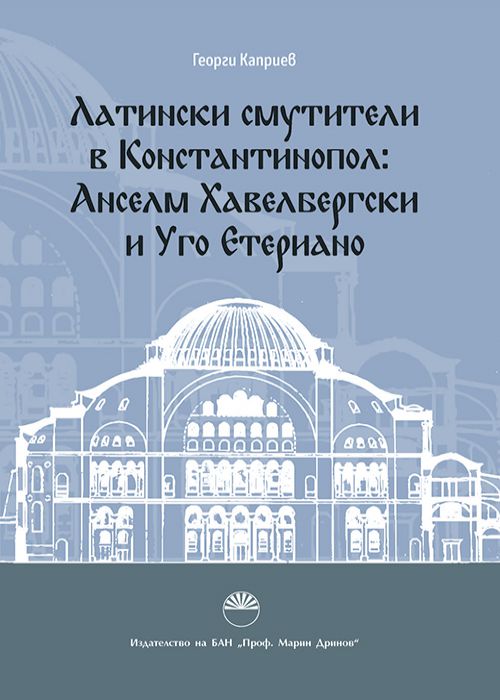Този сайт използва бисквитки (cookies), за да може да ви предостави възможно най-доброто потребителско изживяване. Продължавайки да разглеждате този сайт, вие се съгласявате с използването на бисквитки от него!

Латински смутители в Константинопол: Анселм Хавелбергски и Уго Етериано
Георги Теолог Каприев
10 бр. в наличност
Година на публикуване: 2020
Тип на корицата: Твърда
Категория: Философия
Издание: Първо издание
Страници (бр.): 252
Формат: n/a
Език: Български
Анотация
The study focuses on two different periods of the twelfth century, during which they proceed philosophically
and theological debates between Latin and Byzantine thinkers in Constantinople. The first half of the century is important for the Western world, as far as the so-called the struggle for investiture has undermined the foundations and destroyed the structure of the evidence characteristic of early medieval Western culture. Metaphorically speaking, the world is destroyed and a new one must be assembled. The claims to the universality of its architects require the inclusion of the sphere of Eastern Christianity,
although it is already seen as "our stranger." The universalist Byzantine cultural model, in turn, presupposes a connection with the West, despite the clear distinction between "us" and "them." It is defined as a touchstone for this cultural model. Since the 1960s, the new generation of Western ideologues, who have found an already built and even self-sufficient world, has been increasingly alienated from the East. The pogroms against the Latins in Constantinople in the 1980s turned alienation into open enmity. The process culminated with the conquest of Constantinople by the troops of the Fourth Crusade in 1204.
За автора
Спецификации
ISBN: ISBN978-619-245-0236
Година на публикуване: 2020
Категория: Философия
Издание: Първо издание
Език: Български
Тип на корицата: Твърда
Страници (бр.): 252
Тегло (кг.): 0.600 кг.
Формат: n/a
Ширина (мм.): /n/a
Височина (мм.): /n/a
Дебелина (мм.): /n/a
 bg
bg English
English


